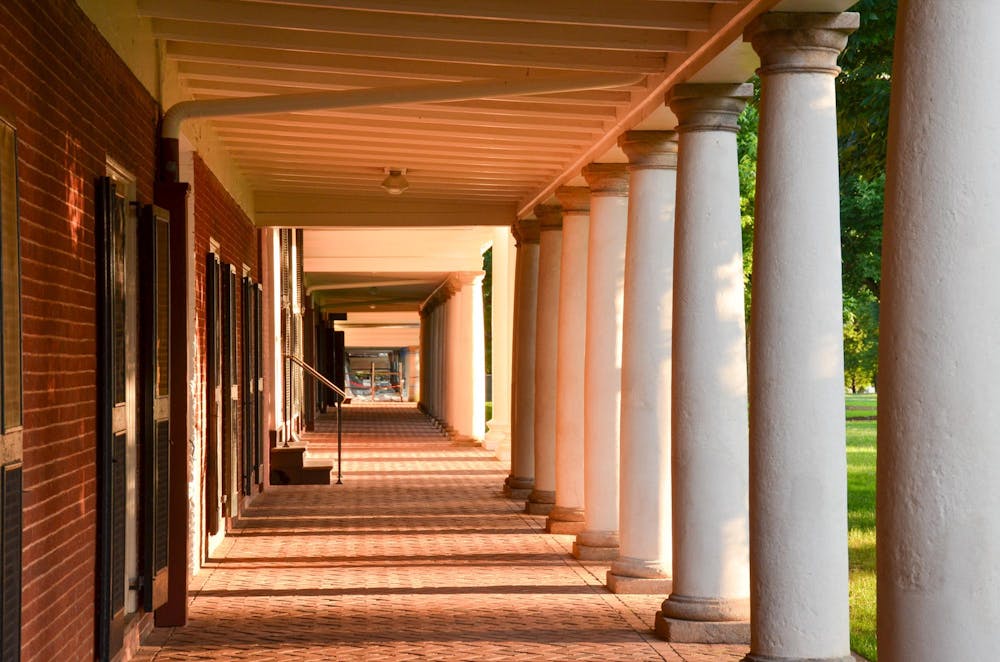We are Jewish faculty and staff at the University. We join our Jewish colleagues across the country in our alarm at the pernicious use of antisemitism to damage higher education and, most recently, our own institution. As members of the Jewish community living in the wake of the Aug. 11 and 12, 2017 attacks, we know what it feels like to hear men with torches chant “Jews will not replace us.” We have good reason to take antisemitism seriously as a threat to diverse forms of Jewish life here and around the world. But, we stand opposed to using the pretext of protecting Jewish members of the University community as justification for dismantling the very systems designed to include and protect Jewish faculty, students and staff.
If the University’s Board of Visitors is indeed committed to rooting out antisemitism, we — Jewish faculty and staff at the University— implore the Board to support efforts aiming for a diverse, equitable and inclusive university. Dismantling this programming will only make antisemitism worse, as Jews are a minority globally and at the University.
We have diverse politics, areas of expertise and relationships to Israel and Palestine. We write united in extreme concern, as we witness an exploitation of the term antisemitism deployed in an effort to harass, expel, arrest, deport, dox and defame students, faculty, staff and other academic workers across the country as part of a broader assault on higher education. Politically disfavored speech is disingenuously being labeled “antisemitic.” This misrepresentation makes Jews the face of political repression and the face of the suppression of speech — this itself is a form of scapegoating. This makes Jews less safe. We also note that we have heard the word “antisemitism” used more in the last 18 months than we did in the immediate aftermath of August 11 and 12, when President Donald Trump called the neo-Nazis who marched on our campus “very fine people.”
These actions taken in the name of countering antisemitism are a direct threat to the core research and education missions of universities, and they are causing material harm to our community. Meanwhile, the actions of the Trump Administration — including the decimation of the Department of Education’s Office of Civil Rights and the Department of Justice’s demand that former University President Jim Ryan resign due to his defense of DEI programs — demonstrate that fighting antisemitism is not their true aim.
We feel an imperative to recognize and resist the Trump Administration’s weaponization of antisemitism against our university. As Jews, recognizing the signs of authoritarianism and the risks of letting them go unchallenged is a part of our heritage.
As Jewish University faculty and staff, we know that when powerful institutions scapegoat and harass marginalized communities, it hurts the entire community, and it makes the world less safe for Jews.
Our investment in debate and disagreement stems not only from our individual beliefs and experiences but also from core Jewish values of engaging with disagreements and protecting the strangers in our midst — this is the heart of “B’tselem Elohim,” a core Jewish value that affirms the dignity of every human being. As scholars and teachers, we know that dissent and debate strengthen our intellectual commitments and moral judgments rather than threaten them. We reject any attempt to deny these basic truths.
We write to add our voice to demands being formulated by the Faculty Senate, the University Staff Senate and members of the University faculty, staff and student and alumni bodies, as well as the Charlottesville community:
- Transparency on the events leading up to and following Ryan’s resignation
- An investigation of possible collusion or irresponsible complicity by the Board of Visitors, either in whole or by individual members, in their discussions with the DOJ
- Meaningful community participation in the process of choosing the University’s interim and next president.
The signatories of this letter are listed below and number 40. They can be reached at opinion@cavalierdaily.com.
The opinions expressed in this guest letter are not necessarily those of The Cavalier Daily. The letter represents the views of the signatories alone.
Ila Berman, School of Architecture
Aniko Bodroghkozy, College of Arts and Sciences
Larry Borish, School of Medicine
Josh Bowers, School of Law
Elizabeth Carpenter, U.Va. Hospital
George Cohen, School of Law
Nancy Deutsch, School of Education and Human Development
Edward Egelman, School of Medicine
Howard Epstein, College of Arts and Sciences
MC Forelle, School of Engineering and Applied Sciences
Thomas Frampton, School of Law
Caren Freeman, International Studies Office
Leora Friedberg, College of Arts and Sciences
Laura Goldblatt, College of Arts and Sciences
Bonnie Gordon, College of Arts and Sciences
Jeffrey Grossman, College of Arts and Sciences
Richard Handler, College of Arts and Sciences
Deborah Hellman, School of Law
Chloe Hawkins, School of Architecture
Caroline Kahlenberg, College of Arts and Sciences
Michelle Kisliuk, College of Arts and Sciences
Thomas Klubock, College of Arts and Sciences
Jonathan Kropko, School of Data Science
Gabrielle Kruks-Wisner, College of Arts and Sciences
Daniel Lefkowitz, College of Arts and Sciences
Manuel Lerdau, College of Arts and Sciences
Melissa Levy, School of Education and Human Development
Sarah Milov, College of Arts and Sciences
Peter Ochs, College of Arts and Sciences
Vanessa Ochs, College of Arts and Sciences
Caroline Rody, College of Arts and Sciences
Jennifer Rubenstein, College of Arts and Sciences
Herman Mark Schwartz, College of Arts and Sciences
John Pepper, College of Arts and Sciences
Cora Schenberg, College of Arts and Sciences
Richard Schragger, School of Law
Sam Shuman, College of Arts and Sciences
Bethany Teachman, College of Arts and Sciences
Bruce Williams, College of Arts and Sciences
Elizabeth Wittner, Center for American English Language and Culture







